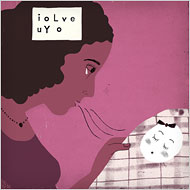
The New York Times
We pick up a lot of programming in life, often without realizing or understanding it as such, especially in our malleable early years. The stories families tell assign roles to each family member and the roles become self-fulfilling prophecies.
A black and white photograph, two sisters side by side, perhaps ages two and five. A mother points out a scowl on the face of one child and how her shoulders lean away from her sister’s and says, “You were always like that.” The message received, at least in the child’s mind, is that she is “the one incapable of love.”
Time passes, the child becomes an adult, and the seed becomes the tree: “I treated men badly and I let them treat me badly. What did it matter? I was the damaged one, the one incapable of love.” More time passes, edges are worn off, she meets a man who believes in her even when she does not believe in herself. She: “I’m too selfish to really love anyone else.” He: “I know who you are. And you are a good person and a loving person.” Marriage and a child follow, and with the child comes the flowering of a mother’s unconditional love.
The mother finally pulls out that old photograph and looks again with new eyes, now knowing she is very capable of deep, real love. A new story emerges: “It occurred to me for the first time that maybe I wasn’t scowling, maybe I was squinting into the sun. I looked at the way my body leaned away from my sister’s and I wondered if I was leaning toward someone who was standing outside the frame—my grandmother, say. A whole new story unspooled in my head: I was five, the sun was in my eyes, I was tired or hungry, and I wanted to run to my grandmother….it seemed at least as likely as the story that I believed for so many years.” (Sources: The New York Times, February 28, 2010, “Modern Love.” Also “Brave Girl Eating,” by Harriet Brown, to be published in August 2010.)
The stories we tell ourselves about ourselves, the stories we choose to believe about ourselves strongly impact our lives. Given that there are many possible interpretations of most events, we ought to tell ourselves stories that serve us, that make us stronger, better, more resilient.
Closing Quotes:
“Our past is a story existing only in our minds. Look, analyze, understand, and forgive. Then, as quickly as possible, chuck it.” — Marianne Williamson, “A Return to Love”
“No story is the same to us after a lapse of time; or rather we who read it are no longer the same interpreters.” — Mary Anne Evans (aka George Eliot), “Silas Marner”
“Miracles are a retelling in small letters of the very same story which is written across the whole world in letters too large for some of us to see.” — C.S. Lewis, British novelist


0 Comments